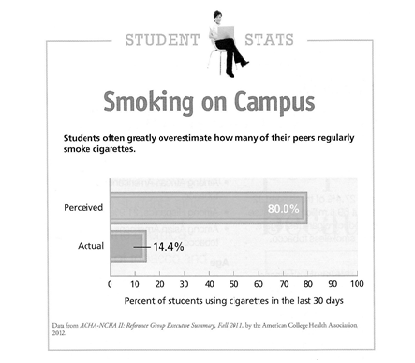¡Qué buen viaje! Beatriz and her boyfriend Rafael just came back from a trip to Argentina. Beatriz wrote this email to her friend Eva. Read the letter and select the correct option to complete the sentences that follow.
?
Querida Eva:
?
¡Fue un viaje estupendo! Primero fui a Buenos Aires y estuve sola allí cuatro días. Pude ir de compras a los grandes centros comerciales como Alto Palermo y Galerías Pacífico, donde también me sentaba a tomar un café por las tardes y leía o escribía mensajes de texto. Me encanta la vida en las grandes ciudades.
?
Días después, Rafael también vino a Buenos Aires y nosotros hicimos varias cosas juntos. Fuimos a los clubes de tango y miramos cómo bailaba la gente. Nosotros también lo intentamos, ¡pero es muy difícil!
?
Después, fuimos a Mendoza. Tú dijiste que tu madre nació allí, ¿verdad? Estuvimos tres días en Mendoza y yo le di una sorpresa a Rafael. Hice reservaciones para ir a Bariloche a esquiar. Rafael no supo de mis planes hasta la última noche en Mendoza. Esa noche le di los boletos de avión pero, ¿sabes qué? ¡Rafael no quería ir! Lo discutimos por bastante tiempo y por fin yo supe por qué.
?
Rafael me dijo que él también tenía una sorpresa para mí. ¡Me dio boletos a Iguazú, para ver las cataratas (waterfalls)! Pues, al final, ¡tuvimos que ir a los dos lugares! Nos divertimos mucho. Volvimos aquí ayer, cansados pero muy contentos.
?
Bueno, te puedo contar más en otro correo electrónico.
?
Un beso,
Bea
La carta de Bea muestra que Argentina es un lugar con…?
A. ?contrastes económicos.
B. ?pocas actividades turísticas.
C. ?variedad geográfica.
Answer: C
You might also like to view...
The graphic indicates that the percentage of students who actually smoked in the last 30 days is
1. Although precise statistics are hard to come by, experts guess that about one out of
every five smokers doesn’t smoke every day. If you’re one of these so-called “social smokers,” you probably believe that your behavior is unlikely to cause any harm. Are
you right? Here’s what the research says about social smoking.
2. Social smokers smoke more than they think. Although gathering precise data is challenging, researchers find that most self-described social smokers actually smoke a
few cigarettes per day. One nicotine addiction specialist notes that people who smoke just one or two cigarettes a week—true social smokers—are very rare indeed.
3. Social smoking leads to addiction. Tobacco researchers point out that the majority of social smokers are on the road to addiction. Initially they may only bum a cigarette
from friends occasionally, but soon they find themselves bumming cigarettes more often. It’s only a matter of time before they find themselves buying a pack a week, then
two or three packs a week. Although they believe that they can quit whenever they want, on average, social smokers end up addicted, and smoking for years. One-third of people who have ever tried smoking become daily smokers.
4. Social smoking increases risk of cardiovascular disease. Studies have shown an increased risk of cardiovascular disease at all levels of smoking. Moreover, smoking begins to exert this effect—causing fatal heart attacks and strokes—as early as age 35. The risk is especially acute for women who also use a hormonal method of birth control
(pills, patch, etc.). One mechanism by which smoking, even at low levels, promotes heart disease is by causing inflammation and dysfunction of the lining of blood vessels.
In one study, young, healthy people who smoked less than one pack per week were found to have a 35% reduction in blood vessel functioning compared with nonsmokers.
5. Social smoking increases cancer risk. Tobacco smoke itself is a carcinogen, as are at least 69 of its component chemicals. Because inherited genetic variations influence cancer rates, as do other determinants such as diet, stress, etc., the influence of
social smoking on cancer promotion is difficult to determine. However, any level of smoking increases the frequency of DNA mutations known to be associated with
cancer. And the risk of cancer is more closely tied to the number of years you’ve smoked—at any level—than to the number of cigarettes smoked per day. As one expert put it, you wouldn’t go out to your car four times a week and inhale exhaust fumes. But that’s the health equivalent of smoking cigarettes four times a week.
6. The bottom line? There is no safe level of exposure to cigarette smoke. If you smoke at all, you are at increased risk of nicotine addiction, cardiovascular disease,
cancer, and other illnesses. Get help, and quit.

a. 94.4%.
b. 80%.
c. 50%.
d. 14.4%.
Select the letter of the correct order for each set of details or sentences. Refusing to forgive someone who has wronged you can actually be harmful to your health, according to psychologists
(1) _____ Refusing to let go of hurt can interfere with your other relationships; for example, you might bore your remaining friends to death with information about your adversary's flaws or your latest plan for revenge. (2) _____ Perhaps most important, your anger can end up weakening your immune system, leaving you vulnerable to serious medical conditions like depression, high blood pressure, heart attack, and cancer. (3) _____ If you continue to hold a grudge, you also give control over your own life and happiness to the person who wronged you. A) 3, 1, 2 B) 1, 3, 2 C) 3, 2, 1
What kind of examples should a writer include in an objective paragraph
or essay? What will be an ideal response?
The three essential parts of an argument include all of the following except
a. an issue. b. a claim. c. refutation. d. support.